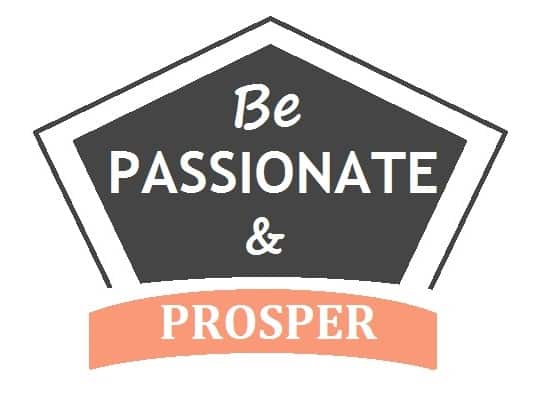How to Buy a House to Rent It Out
If you are thinking about buying a house to rent it out, you might be wondering how to get started. Buying a house to rent it out is also a great way to make your investment money work for you. With this type of real estate investment plan, you are not only setting yourself up for some passive income for your future, but you are also preparing yourself to upgrade or invest in more real estate. Watch the video and read the post for tips about how to buy a house and rent it out!
Benefits to buying a house to rent it out
There are many benefits to buying a house with the end goal of renting it out to tenants.
1. Gives you time to decide
You may not know where you want to live more permanently. You may also not know your overall plans just yet. Buying a small starter home is affordable and can be the first step to get your feet wet with home ownership. This small home doesn’t have to be the house you live in long term.
2. More Affordable
There is a pretty big tax write-off on the interest for your mortgage when you buy a house. There are lots of rules and limitations so it’s best to consult with a CPA or tax attorney. But for the most part, by the time you figure in the deduction you can receive off the interest, home ownership might actually win out over renting for you.
3. The cost is predictable
When you buy a house, the mortgage is a predictable amount. Whereas with renting, the cost is less stable and usually goes UP.
4. You are building an asset portfolio
By buying a house to rent it out, you are building up your investment portfolio. If you can pay rent, and paying for a mortgage is just a couple hundred dollars more, wouldn’t you want your money to go towards something that you can own someday. Renting means you are paying a landlord money and making them rich. Buying a house means you are purchasing an asset which historically increases in value over time. You can sell it for a profit or pass it on to loved ones so they can receive the benefits.
5. You are diversifying your investment portfolio
I’m sure you’ve heard the phrase, “Don’t put all your eggs in one basket.” By purchasing a house with the intention of renting, you are creating another form of passive income for yourself and your future. You don’t want to have all your money in one stock or investment. By diversifying your portfolio, you are buffering yourself against any pitfalls in various markets.
6. Spread Your Dollars Out
There can be a lots of expenses involved in getting a house rent ready. Buying a house to rent it out is a good plan of action because you can live in the home and take care of it to get it ready. This works great if you have a job or investments that pay out monthly. You can tap into some of your income each month to upgrade the house.
7. Passive Income
Having a rental property can eventually provide you with passive income down the road. Once you pay the mortgage off, you will benefit from making rent money each month. Granted you will still have some expenses, but your investment will be working for you, and all the years of paying down your mortgage will pay off.
Our Plan for Buying a House to Rent it Out
As of this writing, we are in the process of getting our house rent ready. You can follow our financial journey on YouTube by clicking here to subscribe.
My husband and I started our journey together by renting a beautiful one bedroom studio apartment in the mountains of Mt. Baldy, CA. Our landlord lived on the property and while he was very nice, we felt that our money could have been going towards an investment. We decided to take the dive into buying a small home in a nearby college town.
As we looked for homes, we didn’t have the plan of turning a house into a rental. But when we found a house we liked, there was something about the home that made us say, “This would make a great rental someday.”
And that’s what motivated us to create a rental property plan!
We started with small tasks to improve upon the upkeep of the house. We realized if we were going to rent it out, we needed to make the house easy to maintain. This meant the yard needed a complete overhaul. The plumbing and electrical will also need updating as this is a 1950’s home.
Everything is functioning, and technically, we could rent out the house now. However, we don’t have plans to leave just yet. We are exploring some new options for our lifestyle. We are considering everything from moving to a new place to buying an RV and traveling more.
Our Tips for Getting the House Rent Ready
- Create landscaping that is easy to maintain- install drip systems, low water landscaping and spruce up the yard
- Make sure all fixtures are working properly- check electrical outlets, sinks, ceiling fans, and appliances
- Install hard wood or laminate flooring- carpet gets stained and will need to be replaced often
- Paint and patch any cracks on the outside of the house.
- Make sure smoke detectors are working properly.
- Replace broken window panes and install neutral blinds.
- Have the fireplace cleaned.
- Think simple fixes instead of large, grand jobs (such as a new roof).
- Keep the lawn and yard edged, cut, weeded, and watered.
- Fill in holes in the yard and remove dangerous objects.
- Repair and damaged fencing. Make sure it is sturdy. Also check decks and railings.
- Remove debris from drains and downspouts. Secure them properly to the home.
- Replace any cracked or loose pavers on patio, walkway or driveway.
- Check the garage door. Make sure the garage door opens and closes properly.
- Remove any personal property that is not included in the lease.
- Throw away clutter and replace old water hoses.
 What to look for as you prepare for buying a house to rent it out
What to look for as you prepare for buying a house to rent it out
- Try to buy in a safe and friendly neighborhood. Walk the sidewalks at different times of the day and night.
- Is there something nearby to make the property more desirable? Such as colleges, shopping, tourism, jobs?
- Is there a need for rentals? Check Rentalhouses.com to see if there is a shortage of available rentals in the area.
- Also use Rentalhouses.com to check for current rental rates. This will tell you if you can make enough to pay back the mortgage, property taxes, insurance, management fees, HOA, and repair fees.
- Does the home have desirable features? The home we purchased is on a cul-de-sac. The neighbors are thoughtful and keep up their homes. The house has a big, fenced-in backyard for play-space or pets.
If you need to know what people are hoping for or looking for in a rental, simply make a appointment with a few property management companies in the area and ask them what people want. I did this with many of the rental properties I bought in different states and it varied from area to area. You might be surprised what people are looking for.
Calculating whether buying a house to rent it out makes sense
When calculating whether it makes sense to rent a property you own, there are many factors to take into account. Do you need income and would like to cash-flow on the property? Or are you simply wanting to rent the property and break even so you can move or travel? Do you have cash reserves in case the property is vacant for some time?
Basically, you will need to run the numbers on a calculator to figure out whether you will cash-flow or not on a property. We recommend using a rental property calculator like the one at Calculator.net. You will plug in your mortgage info as well as expenses for the property. When you click submit, the results will show you what you can expect for profit or losses.
Only you know your specific goals with buying a house to rent it out. Doing these calculations ahead of time is a MUST for understanding your financial situation. It really is the VERY FIRST STEP in determining whether renting your property makes sense.
Related Articles:
Knowing your unique goals with buying a house to rent it out
You might want to buy just one home to eventually rent… or you might want to purchase a few. Knowing your goals ahead of time can help you with making investment decisions with your money.
For example, if you plan on purchasing a few rental properties, it would not make sense to put down a large sum of money for the first one. You would want to only put down 5% if possible. Of course it depends on lenders and what programs are offered at the time. But you see that you wouldn’t want to use up all of your reserves for the down payment on one home. Instead, keep the cash in savings so you have it when the next deal becomes available.
Lay out a clear plan or talk to your spouse or family members about what you would love to accomplish with your investments. Vision that out a bit and write it on a white board or put it on a vision board to start becoming clear about what you want.
Steps to get started for buying a house to rent it out
- Choose an area where people need to rent- near work, good school districts, etc.
- Start with buying a small fixer-upper or a home with 3-4 bedrooms and 2 bathrooms
- Make an assessment of what needs to be done to the home to make it easy maintenance- for the yard, make it simple for a landscape crew to clean in an hour or two. Make a list of other items that need to be addressed.
- Don’t pay for highend appliances (stove, washer and dryer, fridge) because renters can be hard on them. Buy practical appliances that do the job. In some areas, the renter will provide their own appliances. Check with a local property management company or look at similar listings on RentalHouses.com to see what other landlords are providing.
- Install fresh paint and laminate floors in neutral tones (carpeting gets stained).
These are simply steps to think about when you are in the process of buying a home to fix it up to rent. Your next steps would include things like listing the property for rent, interviewing potential tenants, paying for insurance, and hiring a property manager (if you don’t want to manage it yourself).
If you are considering investment property, I’d highly recommend you read John T. Reed’s book How To Get Started in Real Estate. He does a great job of giving you practical advice and describes exactly what it takes to have success when investing in real estate.






6 Comments
Leave your reply.